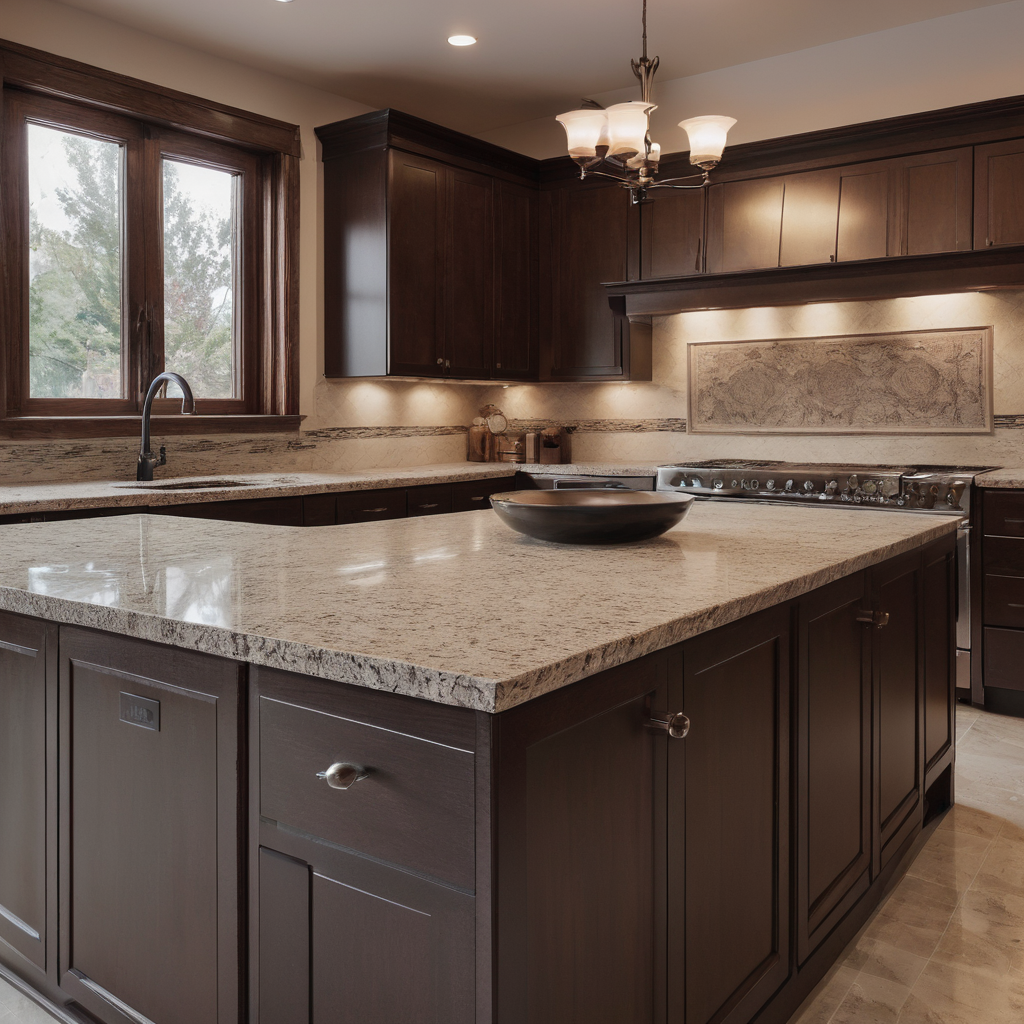
Countertops play a significant role in defining the aesthetic appeal, functionality, and durability of your kitchen or bathroom space. With a wide range of materials available, selecting the right countertop for your home involves considering factors such as style preferences, maintenance requirements, durability, and budget constraints. This article serves as a comprehensive guide to exploring the diverse world of countertops, highlighting the characteristics, pros and cons, and popular uses of various countertop materials.
1. Granite Countertops:
Granite countertops are a popular choice known for their natural beauty, durability, and heat resistance. Key features of granite countertops include: – Natural Stone: Each granite slab is unique, showcasing distinctive patterns and colors.
- Durability: Resistant to scratches, heat, and stains with proper sealing.
- Maintenance: Requires periodic sealing to maintain its appearance and prevent staining.
- Popular Uses: Ideal for kitchen countertops, islands, and bathroom vanities.
2. Quartz Countertops:
Quartz countertops offer a blend of beauty and durability, making them a versatile choice for modern homes. Key features of quartz countertops include: – Engineered Stone: Composed of natural quartz crystals and resin binders for strength.
- Non-Porous: Resistant to stains, scratches, and bacteria growth.
- Low Maintenance: Does not require sealing and is easy to clean.
- Popular Uses: Suitable for kitchen countertops, backsplashes, and bathroom vanities.
3. Marble Countertops:
Marble countertops exude elegance and sophistication, adding a timeless appeal to any space. Key features of marble countertops include: – Natural Stone: Known for its luxurious appearance and veining patterns.
- Heat Resistance: Ideal for baking and pastry preparation due to its cool surface.
- Maintenance: Requires regular sealing and care to prevent staining.
- Popular Uses: Commonly used in kitchen islands, bathroom vanities, and fireplace surrounds.
4. Solid Surface Countertops:
Solid surface countertops offer versatility and seamless integration in various design styles. Key features of solid surface countertops include: – Synthetic Material: Composed of acrylic or polyester resins with mineral fillers.
- Seamless Design: Allows for integrated sinks and custom shapes.
- Repairable: Scratches and stains can be easily buffed out.
- Popular Uses: Suitable for kitchen countertops, sinks, and shower surrounds.
5. Butcher Block Countertops:
Butcher block countertops bring warmth and natural beauty to kitchens, creating a cozy and inviting atmosphere. Key features of butcher block countertops include: – Wood Material: Made from hardwoods like maple, oak, or walnut.
- Warmth and Texture: Adds a rustic charm and tactile appeal to the space.
- Maintenance: Requires regular sealing and oiling to prevent water damage.
- Popular Uses: Ideal for kitchen countertops, islands, and dining areas.
6. Laminate Countertops:
Laminate countertops offer affordability and a wide range of colors and patterns to suit different design preferences. Key features of laminate countertops include: – Synthetic Material: Constructed with layers of paper and resin bonded to particleboard.
- Cost-Effective: Budget-friendly option for homeowners on a tight budget.
- Easy Maintenance: Resistant to stains and easy to clean with mild soap and water.
- Popular Uses: Commonly used in kitchens, bathrooms, and laundry rooms.
In conclusion, the choice of countertop material for your home is a significant decision that impacts the aesthetics, functionality, and maintenance requirements of your space. By exploring the characteristics, pros and cons, and popular uses of different countertop materials such as granite, quartz, marble, solid surface, butcher block, and laminate, you can make an informed decision that aligns with your style preferences, budget constraints, and lifestyle needs. Prioritize durability, maintenance considerations, and design compatibility when selecting a countertop material to create a functional and visually appealing space that reflects your personal style and enhances the overall look of your home.
Cedar Hill St. Louis Jefferson County Olivette Kirkwood Ballwin Arnold Franklin County St Charles County Fenton High Ridge Dittmer Creve Coeur
